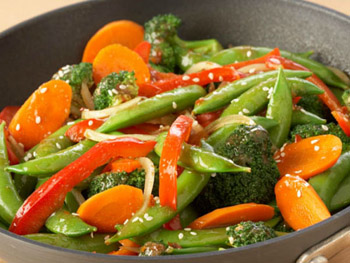 Apr 20: Teenagers tend to eat whatever they want because they are constantly on the move. Also, their hectic and stressful schedules always keep them on their toes. But constantly eating junk food can have severe health repercussions later on in life. Nutritionist, Suman Agarwal, Fitness expert, Food Guru and Owner of Selfcare India, shares a few tips on how to choose healthy eating options, when dining out.
Apr 20: Teenagers tend to eat whatever they want because they are constantly on the move. Also, their hectic and stressful schedules always keep them on their toes. But constantly eating junk food can have severe health repercussions later on in life. Nutritionist, Suman Agarwal, Fitness expert, Food Guru and Owner of Selfcare India, shares a few tips on how to choose healthy eating options, when dining out.
Health eating out options
Ø Pasta with chicken in arabiatta sauce
Ø Tofu with stir fry veggies
Ø Non-fried chicken/fish preparation with very little rice
Ø Pesarrattu (dal dosa) with vegetables
Ø Rawa idlis with sambhar
Ø Mushroom risotto with chickpea salad
However, always keep the following pointers (do’s and don’ts) in mind, which will keep you healthy and satisfied:
Ø Avoid deep fried foods, mayonnaise, cream cheese and any other table foods (like a bread basket) that add to your calories.
Ø In vegetables, avoid cashews, coconut or cream based gravies.
Ø Opt for the green chutney or tomato chutney instead of the coconut one.
Ø Opt for steamed and grilled starters instead of the deep fried variety.
Ø Pick up sorbet or a fruit pudding instead of a high calorie dessert.
Ø Never miss your proteins (chicken, fish, dal, milk and curd), or else have your protein before you leave your house.
A sample menu for a teenager would look like:
Breakfast-Any one of the following options:
Ø Cereal with milk
Ø Toast and eggwhite omlette
Ø Paratha with curd
Lunch-Any one of the following options
Ø Roti + dal + vegetable + curd
Ø Wraps with curd
Ø Veg pulao with tofu
Evening-Any one of the following options
Ø Milk and biscuits
Ø Milk and bread toast
Ø Eggs and toast
Dinner -Any one of the following options:
Ø Roti + dal + vegetable + curd
Ø Pasta with baked beans
Ø Noodles with stir fry veggies and tofu
In the end, it’s not always what one chooses, but also, how much one chooses. Continuous binging on high calorie foods is not always healthy. So, one must always keep a check on what they are eating, how much and at what time. This will ensure that one remains fit and healthy.





Comments
Wood Grades - All wood has a particular grade assigned to it.
The grade refers to the high quality of the wood
in other words - the defects.
My web blog: free small woodworking projects easy (Kitty: http://s3.amazonaws.com/shedwoody/index/93.html)
Add new comment